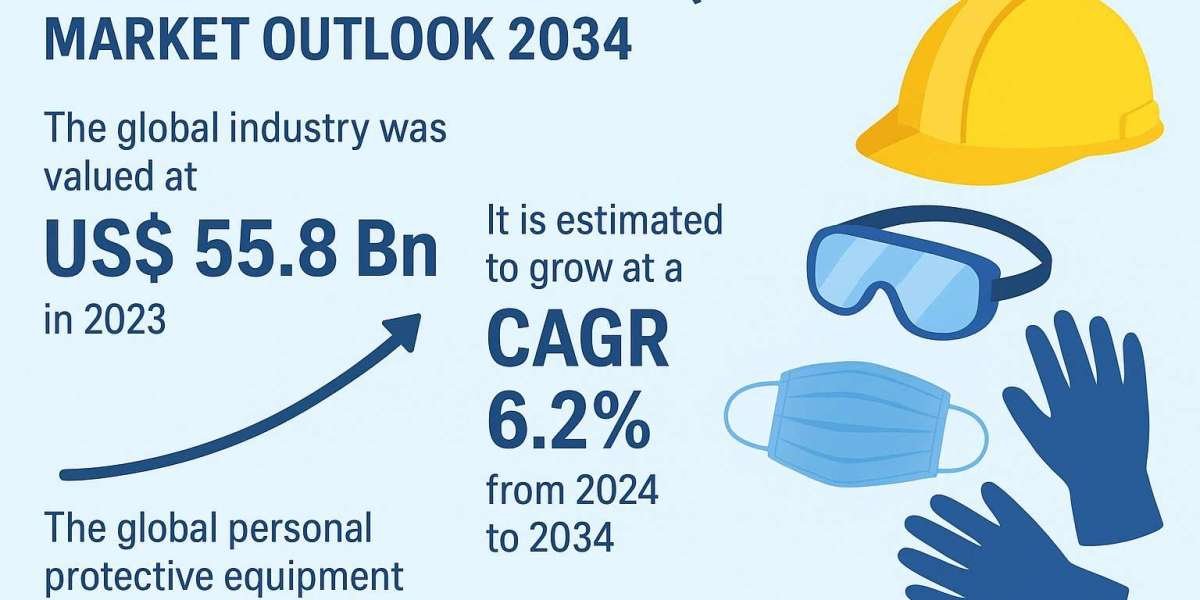The global Personal Protective Equipment (PPE) Market is projected to expand significantly, reaching US$ 107.7 Bn by 2034, rising from US$ 55.8 Bn in 2023, at a CAGR of 6.2% between 2024 and 2034, according to a new report by Transparency Market Research. Increased awareness of occupational health hazards, rising safety compliance across industries, and rapid technological advancements are key factors propelling market growth.
Growing concerns about workplace accidents, chemical exposure, and respiratory hazards have strengthened the need for PPE across sectors such as manufacturing, construction, healthcare, pharmaceuticals, mining, food processing, and oil gas. The expansion of industrial activities globally, combined with mandatory compliance guidelines set by regulatory bodies such as OSHA (U.S.) and PPE Regulation (EU) 2016/425, continue to enhance product adoption.
Market Drivers: Rising Awareness Stringent Global Safety Policies
Increasing safety awareness among employers and workers has accelerated PPE demand. Educational initiatives by organizations such as OSHA and the International Safety Equipment Association (ISEA) continue to highlight long-term risks associated with hazardous working conditions.
The enforcement of updated global safety regulations compels industries to adopt certified PPE to avoid penalties and ensure operational continuity. As hazardous risks evolve, companies increasingly invest in advanced protective gear, creating strong market opportunities.
Smart Technology Integration to Offer New Growth Avenues
The integration of smart sensors, IoT-enabled helmets, connected gloves, and fatigue-monitoring wearables is emerging as a transformative trend. Smart PPE enhances real-time hazard detection, reduces response time in emergencies, and improves safety documentation for regulatory compliance.
These innovations are driving strong demand among industries prioritizing both worker safety and operational analytics.
Asia Pacific Leads Global Market
Asia Pacific is expected to remain the leading regional market throughout the forecast period. The region’s rapid construction growth, strict worker-safety mandates, rising industrialization, and government-backed safety programs drive substantial PPE adoption. Robust manufacturing activity in China, India, and Southeast Asia contributes to its dominant position.
Competitive Landscape
Key companies are expanding their product portfolios, forming strategic alliances, and investing in smart PPE technologies. Prominent players include:
3M Company
Honeywell International Inc.
MSA Safety Incorporated
Kimberly-Clark Professional
Ansell Limited
Lakeland Industries, Inc.
Radians, Inc.
Moldex-Metric, Inc.
Gateway Safety, Inc.
Ergodyne
Recent activities include mergers, acquisitions, and product innovations aimed at strengthening global presence. Notably, KARAM Safety’s acquisition of Midas Safety India underscores the increasing consolidation in the PPE manufacturing landscape.



